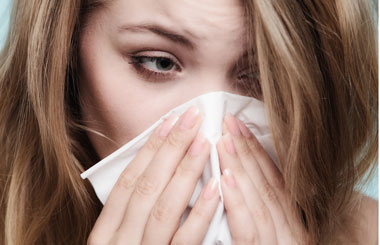International Infection Prevention Week (IIPW) is observed during the third week of October each year. IIPW aims raises awareness about the role infection prevention plays to improve patient safety. In 2018, IIPW runs from October 14-20 with the theme: Protecting Patients Everywhere.

The Association for Professionals in Infection Control and Epidemiology (APIC) is the leading professional association for infection preventionists (IPs) with more than 15,000 members whose mission is to create a safer world through the prevention of infection. Established in 1986 by President Ronald Reagan, APIC has led the efforts to highlight the importance of infection prevention among healthcare professionals, administrators, legislators, and consumers. Over the years, this week of recognition has expanded to many countries across the globe. As the reach of IIPW widens, more patients benefit from safer healthcare practices and reduced threat of healthcare-associated infections.
This year’s theme “Protecting Patients Everywhere”, reminds patients, families, and healthcare personnel that everyone has an important role to play in keeping patients safe from infection. Patients play an important role in receiving safer, infection-free care. So, to ensure that they are free from infections, they should be aware of the basics of infection prevention. Every individual should make an effort to follow all necessary steps to stop spreading infection and educate patients about this.Here are some tips to stay safe from infections:
- Hand Hygiene: One of the important ways to prevent infection is to keep your hands always clean. Hand hygiene is critical for people who have frequent physical contact with other people or who handle food. According to the Centers for Disease Control and Prevention (CDC), hand hygiene is the simplest approach to preventing the spread of infections.
- Cleanse hands regularly with soap and warm water.
- If your hands are not dirty or if it’s not possible to move from your bed, ask for an alcohol-based hand sanitizer. Dispense a walnut-sized amount of the alcohol hand rub into your hand and rub until dry before touching anything.
- Make sure you perform cleansing hands, after using the bathroom, blowing your nose, coughing, sneezing, before eating, before and after changing dressings or bandages, when entering or leaving your room, and after visiting hospital patients who are seriously ill.
- Make sure your health care providers clean their hands or wear gloves, as they are more in contact with lots of bacteria and viruses, and it’s possible for infections to spread quickly.
- Cover your mouth and nose: Many diseases can spread easily through sneezes and coughs. So always cover your mouth and nose while sneezing and coughing to prevent the spread of infection to others.
- Use a surgical mask or always keep tissue handy wherever you go and use a tissue.After the use, make sure you throw away used tissues and then clean your hands.
- If you don’t have atissue, cover your mouth and nose with your upper arm or elbow.
- If there are people in room, make sure you turn away from them while sneezing.
- Avoid contact with others if you are sick:
- If you are sick, stay away from other people or stay home and don’t shake hands or touch others.
- If seeking medical treatment, ask for an appointment so that you can avoid staying longer in the waiting room to avoid infecting others in the room.
- Get shots to avoid disease and fight the spread of infection: Vaccinations or shots are not only meant for children, even adults should have them. Check with your doctor about the shots you may need and take them.
- Shots are available for certain diseases such as Chicken pox, Measles, Tetanus, Meningitis, Shingles, Mumps, Hepatitis, Flu – Influenza, whooping cough (Pertussis), Pneumonia (Streptococcus pneumoniae), German measles (Rubella) and Human papillomavirus (HPV).
- If you work in a healthcare center, you must take there commended vaccinations as staff come into contact with patients with different types of diseases and may sometimes be the cause of the spread of infections.
- Using Antibiotics: Antibiotics will only work for bacterial infections such as whooping cough, strep throat and urinary tract infections. Infections caused due to viruses cannot be treated with antibiotics. However, always take antibiotics if your health care provider prescribes it for you. Take care not to skip a dose and take the medicines the way your doctor prescribes.
Basically, personal hygiene is the most important thing when it comes to preventing spread of infection. Good personal hygiene will limit the possibility of these germs finding a way into your body.